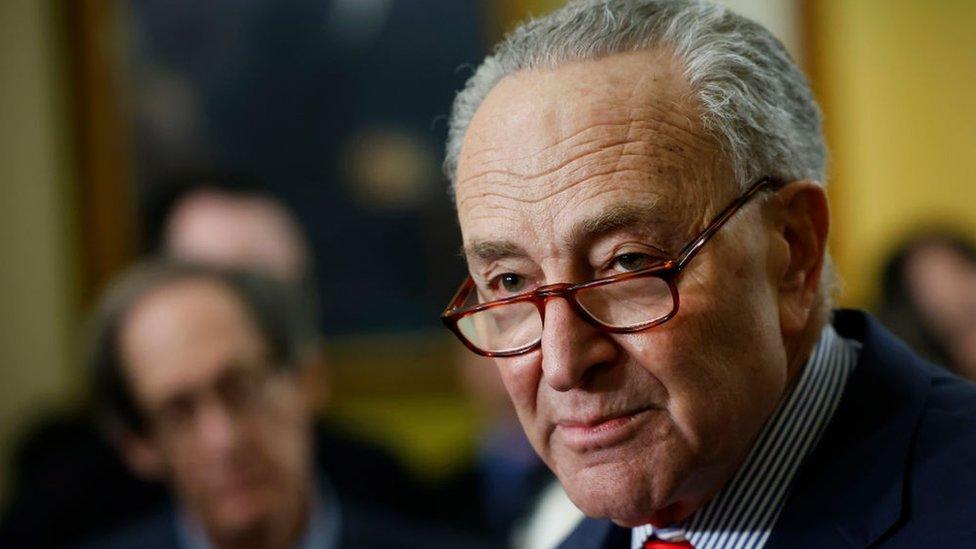Israel-Gaza war: Netanyahu vows to defy allies on Rafah invasion
- Published
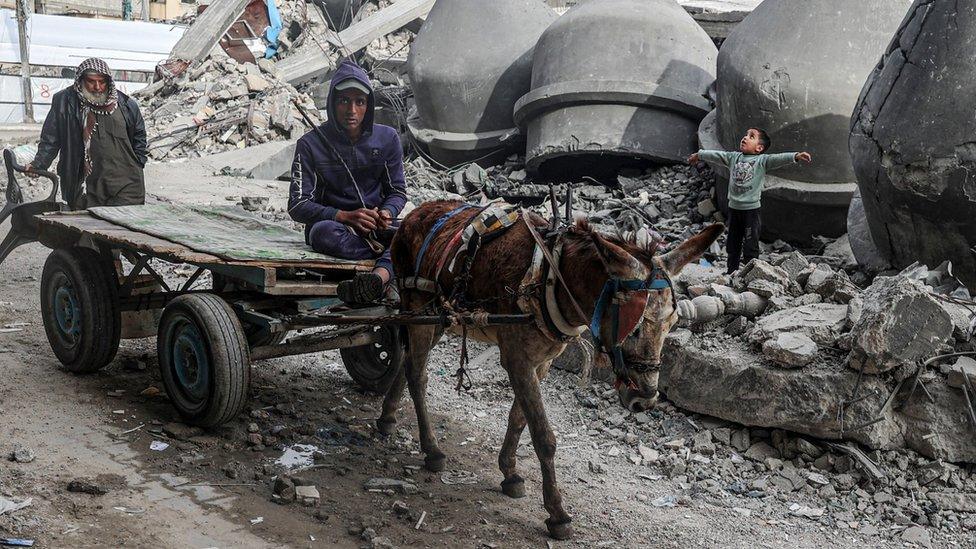
More than a million Palestinians have fled to Rafah from other parts of Gaza
Israel's Prime Minister Benjamin Netanyahu has reaffirmed his determination to launch an offensive in Rafah, defying international criticism.
The city is crammed with some 1.5 million Palestinians from other parts of Gaza seeking refuge.
His comments come as the German chancellor, on a Middle East trip, restated his opposition to the plan.
But Mr Netanyahu said "no international pressure will stop Israel" from achieving all of its war aims.
"If we stop the war now before achieving all of its goals, the meaning is that Israel had lost the war and we will not allow this," Mr Netanyahu told a meeting of his cabinet.
He said Israel must be able to continue its war, with the aims of eliminating Hamas, releasing all hostages and ensuring Gaza "no longer poses a threat".
"To do this, we will also operate in Rafah."
Mr Netanyahu said the offensive in city at the southern tip of the Gaza Strip "will happen" and will take "several weeks".
He also lashed out at his critics, saying to them: "Is your memory so short?
"So quickly you forgot about [7 October], the worst massacre committed against Jews since the Holocaust."
Those attacks, in which about 1,200 people were killed and more than 250 were taken hostage from Israel, sparked the current war.
The Hamas-run health ministry in Gaza says more than 31,400 have been killed.
The Israeli leader met German Chancellor Olaf Scholz on Sunday.
Speaking to reporters in a joint news conference Mr Scholz said he spoke to Mr Netanyahu about the need to provide those in Gaza with "comprehensive humanitarian aid supplies". He stressed that conditions for aid distribution "must be urgently and massively improved".
He said a hostage deal for Israelis taken by Hamas on 7 October was necessary alongside a longer-lasting ceasefire in Gaza.
The German leader said he told his Israeli counterpart a "humanitarian logic" should be considered ahead of a ground offensive in Rafah.
To which Mr Netanyahu said: "[Israel's] goal in eliminating the remaining terrorist battalions in Rafah goes hand in hand with enabling the civilian population to leave Rafah".
"It's not something that we will do, while keeping the population locked in place," the Israeli leader added.
Israel's plans have been heavily criticised by the international community, with the UN and US also warning that a full-scale assault in Rafah could be disastrous.
Tedros Adhanom Ghebreyesus, the head of the UN's World Health Organization, on Friday appealed to Israel "in the name of humanity" not to launch such an attack on Gaza's southern-most city.
The US says it has not yet seen a detailed Israeli plan for Rafah, and President Joe Biden has warned Israel against expanding its invasion in the city, calling it a "red line".
The relationship between Israel and the US is becoming ever more fractious.
But Israel's prime minister believes he still has the pro-Israel American lobby behind him.
The risk, though, is that as the US election draws closer, the Biden administration could decide to placate Americans frustrated by its support for Israel, and begin to limit military aid.
Nevertheless, Mr Netanyahu's office approved plans for a military operation in Rafah on Friday, adding that the army was preparing for the evacuation of civilians.
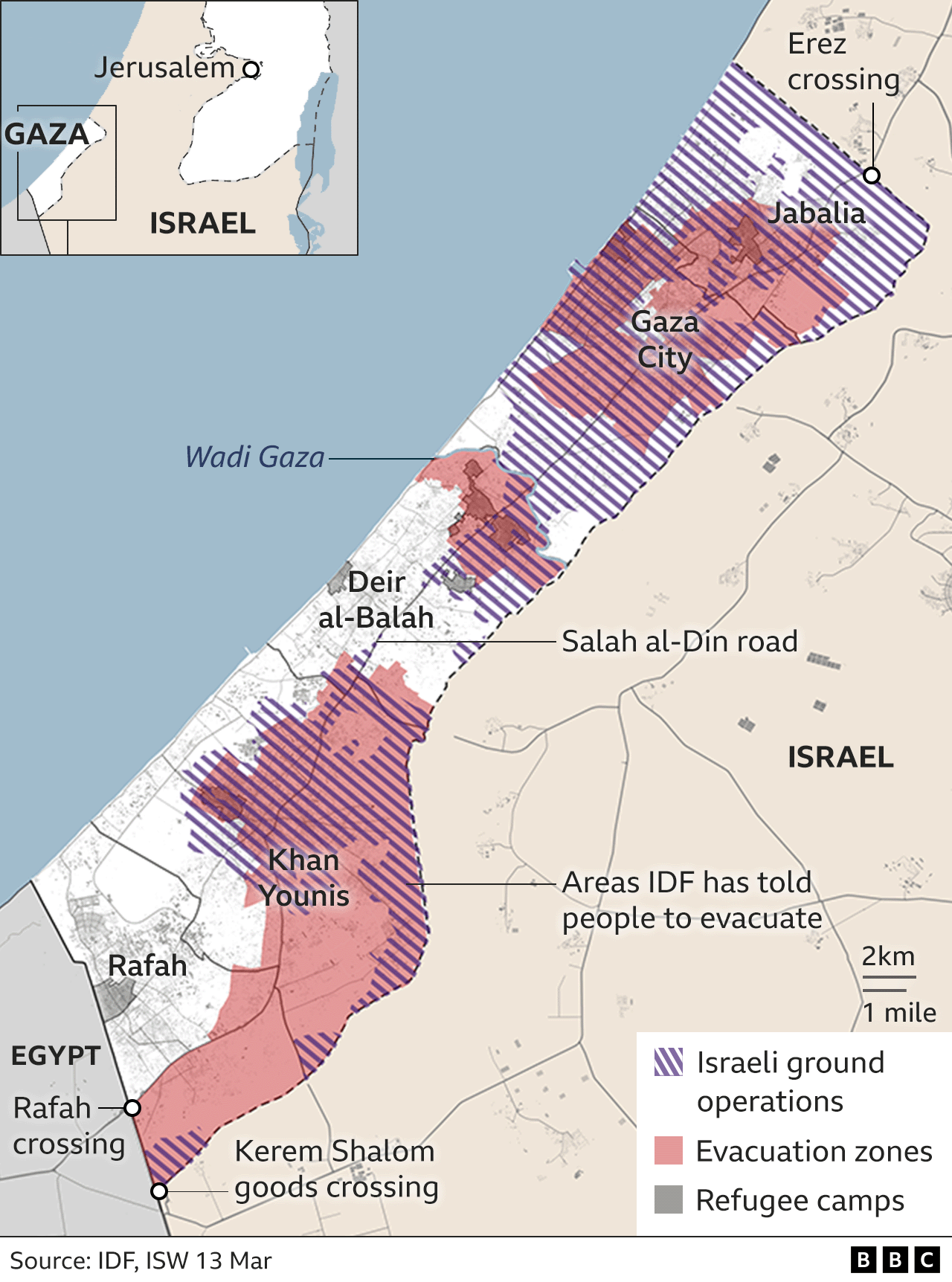
The Israel Defense Forces (IDF) said it planned to move displaced Palestinians in Gaza to what it called "humanitarian islands" in the middle of the strip. It is not clear what the "islands" will look like, or how they will operate.
Moving an estimated 1.4 million Gazans from Rafah would take time - and troops, and Israel's military is already stretched in combat and aid distribution.
Doing so would require finding places of safety in the wasteland of Gaza, and providing food and water, so it could still take time for an offensive there to start - if it does at all.
Speaking in Jordan earlier, Mr Scholz referenced the need for a truce "that lasts longer".
Ceasefire talks were expected to resume in Qatar in the coming days. Israel had planned to send a delegation to join the negotiations, but ministers were yet to agree on its mandate.
Israel has faced mounting criticism for the number of civilian casualties in Gaza, as well as shortages of aid that have fuelled fears of famine.
On Thursday, US Senate majority leader Chuck Schumer called for Israel to hold elections to replace Mr Netanyahu.
The prime minister slammed the comments as "totally inappropriate", and said they should be working instead to bring down the "Hamas tyranny".
This appears to be vintage Benjamin Netanyahu: hitting back at critics and digging in amidst mounting pressure at home and abroad.
He is increasingly hemmed in: Chided by members of his own government; increasingly reviled by families of the hostages; and excoriated by western allies who have run out of patience.
The Israeli prime minister appears determined to pursue the war, pushed by his more bellicose far-right ministers, and believes that despite all the criticism here, a traumatised Israel still backs the offensive in Gaza.
Most Israelis do still support an offensive to crush Hamas, albeit while also getting the hostages back.
But it's also possible that he's talking tough on Rafah to up the pressure on Hamas before the new ceasefire talks in Doha, to which Israel will send a delegation.
And he knows that when eventually the war ends, so could his political career.
Related topics
- Published16 March 2024
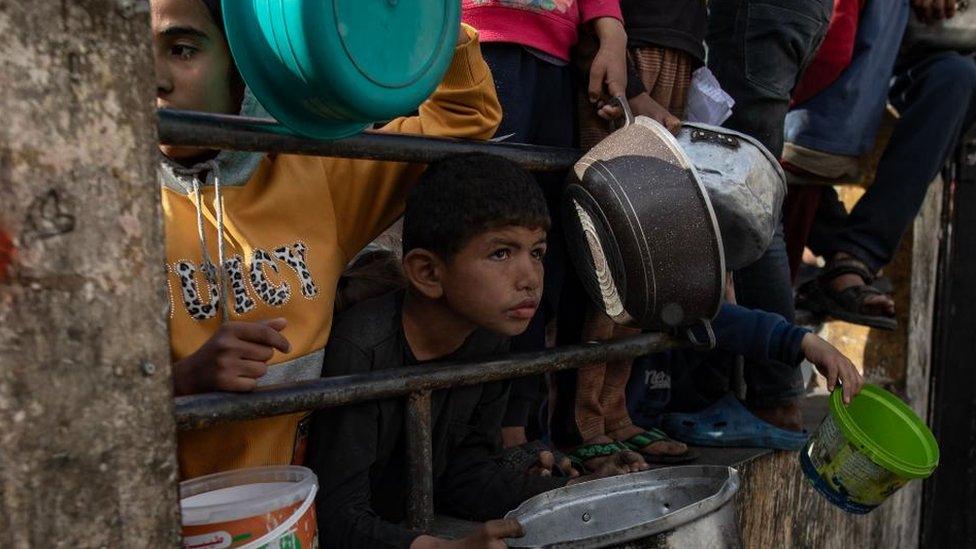
- Published15 March 2024
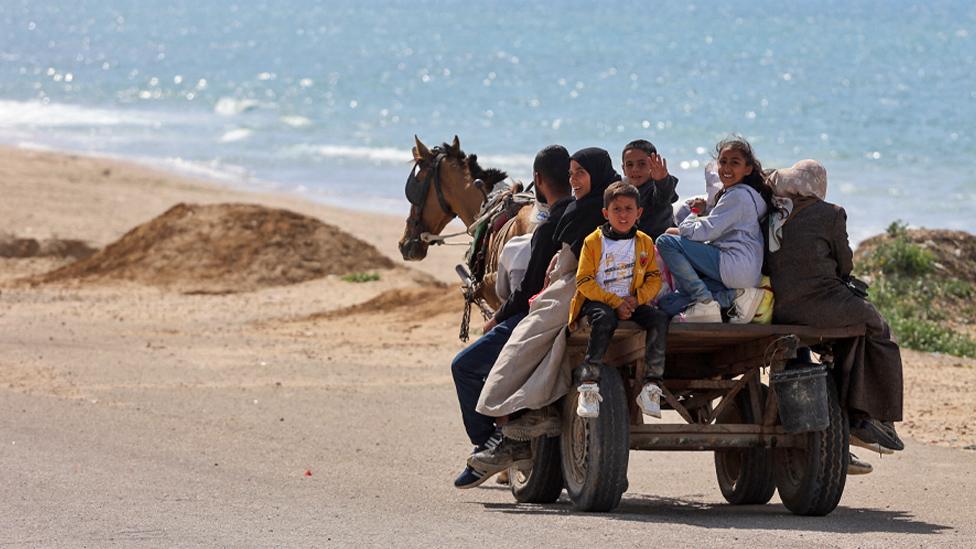
- Published17 March 2024
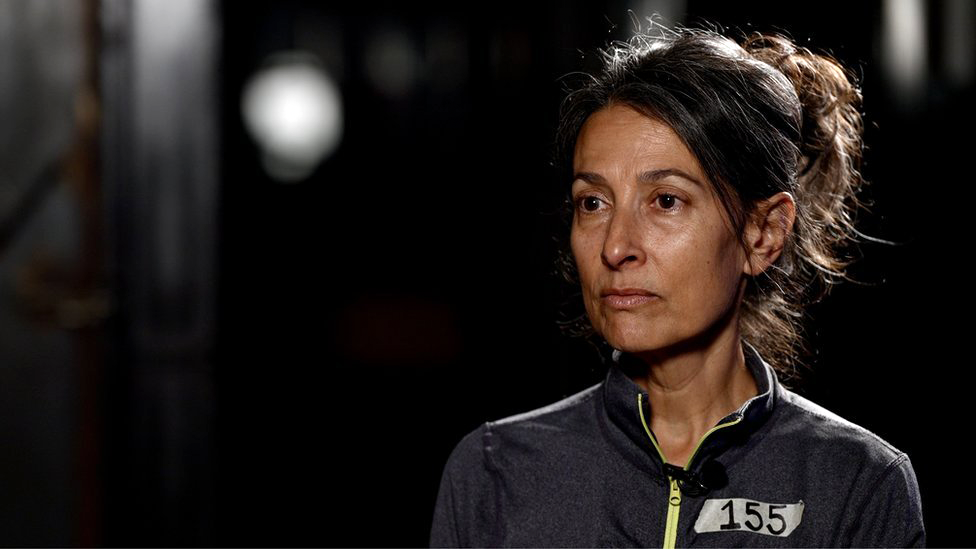
- Published16 March 2024

- Published15 March 2024
